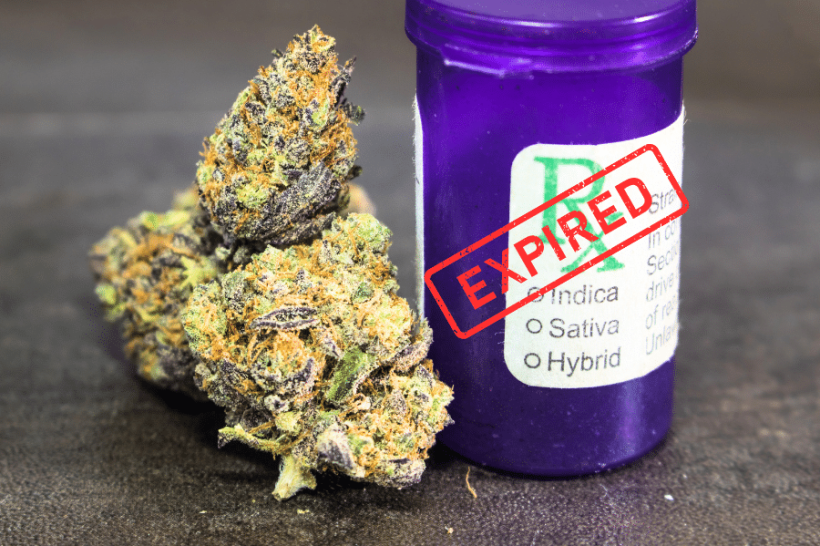Exploring the Diverse Use Medical Cannabis in Modern Medicine
In the realm of contemporary medicine, the exploration of medical cannabis has actually unveiled a range of prospective applications that prolong much beyond its traditional usage. From pain management to neurological problems, the convenience of cannabis in addressing different wellness problems has actually stimulated the rate of interest of medical care experts and researchers alike. As we navigate through the elaborate landscape of clinical cannabis in modern medical care, it becomes apparent that its varied uses hold pledge for ingenious therapeutic interventions.
Discomfort Monitoring
Pain administration utilizing medical cannabis has amassed raising focus in the field of health care due to its potential efficacy in giving alleviation for numerous kinds of severe and persistent pain problems. The cannabinoids present in clinical cannabis, specifically tetrahydrocannabinol (THC) and cannabidiol (CBD), are understood for their analgesic residential or commercial properties. These substances engage with the endocannabinoid system in the body, which plays an important duty in managing discomfort feeling.

As more study is conducted and regulations advance, clinical cannabis might potentially play a more substantial role in the multimodal method to pain monitoring in healthcare.
Epilepsy Therapy
Discovering the efficacy of medical cannabis in taking care of epilepsy has actually revealed encouraging results in improving seizure control and quality of life for individuals with treatment-resistant types of the condition. In recent years, study right into the use of clinical marijuana, particularly substances like cannabidiol (CBD), has actually gotten interest for its prospective restorative advantages in epilepsy management.
Research studies have actually indicated that CBD, a non-psychoactive component of marijuana, may help in reducing seizure frequency and extent in particular sorts of epilepsy. The precise mechanisms of just how CBD interacts with the mind to control seizures are still being investigated. The existing information suggests that medical cannabis might be a useful addition to the therapy choices offered for clients with refractory epilepsy. As more study unravels, the role of medical cannabis in epilepsy treatment remains to be a location of energetic exploration in the medical neighborhood.

Stress And Anxiety Relief
Study research studies have actually demonstrated the capacity of clinical marijuana in offering alleviation for people experiencing from stress and anxiety problems. This has led researchers to discover alternate options, including clinical marijuana.
Marijuana has compounds referred to as cannabinoids, which connect with the body's endocannabinoid system. This system plays a critical duty in controling numerous physiological processes, including mood and stress and anxiety reactions. By targeting the endocannabinoid system, medical cannabis might assist relieve symptoms of anxiousness.
Studies have actually shown that particular cannabinoids, such as cannabidiol (CBD), have anxiolytic residential or commercial properties, meaning they can minimize anxiety levels. CBD is non-psychoactive, unlike tetrahydrocannabinol (THC), an additional cannabinoid located in cannabis. This makes CBD an appealing alternative for people looking for anxiety alleviation without experiencing the psychoactive results frequently related to cannabis use.
Cancer Cells Signs And Symptom Control
Offered the encouraging impacts of clinical cannabis on anxiousness relief, its possible application in helping manage symptoms connected with cancer cells is an area of boosting interest amongst scientists and healthcare professionals. Cancer cells patients frequently experience different distressing signs and symptoms such as discomfort, queasiness, loss of appetite, and sleeplessness due to the illness itself or the negative effects of treatment. Medical cannabis, with its compounds like THC and CBD, has actually shown pledge in easing these symptoms.
Discomfort management is one of the most commonly identified benefits of medical marijuana in cancer care. Studies have actually shown that cannabis can assist internal medicine clinic lower discomfort degrees, improving the high quality of life for people undertaking cancer therapy.
Neurological Disorders Assistance

In epilepsy, for example, CBD has been researched for its possible to reduce the frequency and severity of seizures in click here to find out more patients that do not respond well to typical anti-seizure medicines. THC has shown assurance in alleviating muscle mass spasticity and discomfort in people with numerous sclerosis. Individuals with Parkinson's condition have reported improvements in electric motor signs such as shakes and rigidness after utilizing medical cannabis.
While even more study is required to fully understand the mechanisms and long-lasting results of clinical cannabis on neurological disorders, present evidence suggests that it might be a valuable addition to traditional treatment choices for patients seeking symptom alleviation. (Medical Cannabis Clinic)
Verdict
In conclusion, clinical cannabis has demonstrated its performance in different clinical applications, including pain monitoring, epilepsy therapy, anxiety alleviation, cancer cells signs and symptom control, and assistance for neurological conditions. The varied uses clinical marijuana in modern-day medicine emphasize its possible as a beneficial device for medical care experts in improving client end results and quality of life. Further research and expedition of its therapeutic benefits are required to completely understand and harness its medicinal residential properties.
Discomfort management utilizing clinical cannabis has gathered raising attention in the field of healthcare due to its potential efficiency in giving relief for numerous types of severe and persistent discomfort conditions.Studies have revealed appealing outcomes pertaining to the use of clinical marijuana in relieving neuropathic discomfort, joint inflammation, migraine headaches, and various other types of pain that are often testing to treat with typical medications. People that have not responded well to conventional discomfort monitoring techniques may find alleviation with clinical marijuana. As further research unravels, the function of medical marijuana in epilepsy treatment continues to be an area of energetic exploration in the clinical area.
In conclusion, medical marijuana has try this demonstrated its efficiency in numerous medical applications, including pain monitoring, epilepsy treatment, anxiety relief, cancer signs and symptom control, and assistance for neurological problems. (Medical Marijuana Card Clinton MS)